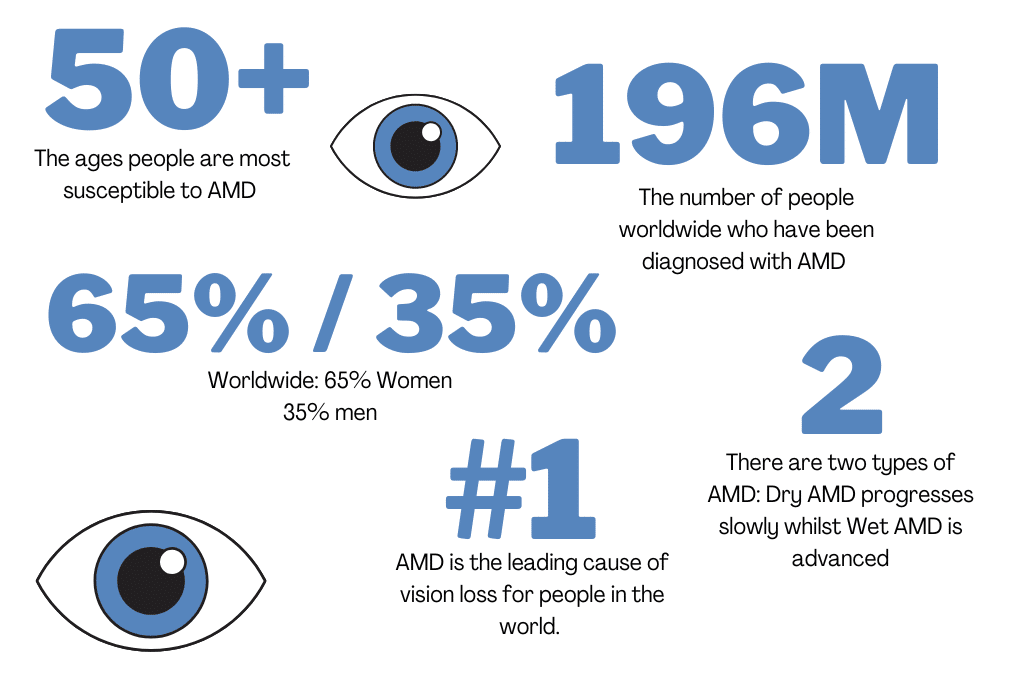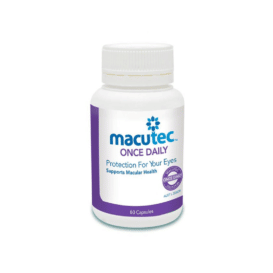
February is not only a month filled with expressions of love but also an important time to raise awareness about Macular Degeneration. This month is dedicated to shedding light on the vision-threatening condition, providing education, and encouraging early detection and prevention. In this blog post, we’ll delve into what macular degeneration is, its impact on vision, and the importance of awareness and prevention.
Understanding Macular Degeneration
Macular Degeneration, often referred to as AMD (Age-related Macular Degeneration), is a progressive eye disease that affects the macula, a small but crucial part of the retina responsible for central vision. This condition is more common in individuals aged 50 and older, making it a significant concern as the global population ages.
There is evidence that Age-Related Macular Degeneration occurs in 1 out of 7 Australian’s over the age of 50. If you have family history of AMD, there is a chance that it will affect you by a certain age. It is important to have regular eye tests to monitor the condition. AMD Awareness month is a great way to learn more abut the disease, how to manage it and remember that eye health is just as important as your overall general health.
How Can AMD Be Identified?
If you find that you have blind spots in your central vision and are experiencing blurred vision, these are signs that you may have AMD. Usually, an optometrist will test for the condition by using dilating drops in the eyes, which widens the pupils so it is easier to check your eyes for any problems. The eye doctor would be looking for any fluid or blood that form under the retina, called drusen. This would confirm whether or not you have a form of the condition.
Prevention and Management
While there is no cure for macular degeneration, certain lifestyle choices can help reduce the risk and slow its progression.
A healthy diet is recommended to maintain your eye health. Eating foods such as fish and omega rich foods including green leafy vegetables are ideal.
Switching your daily lifestyle habits can also have an effect on blood pressure and cholesterol levels, which may mean to de-stress and less intake of alcohol and foods that increase blood pressure and cholesterol.
Also, having regular eye tests with your optometrist to ensure your eyes stay healthy and there isn’t a dramatic change with your macula.
How Can you Treat AMD?
Macutec tablets are a great way to get a daily dose of vitamins and nutrients specifically formulated to help slow down the progression of macular degeneration. For further information on AMD, visit the Macular Disease Foundation website.
Raising Awareness for Macular Degeneration
Increasing awareness about macular degeneration is crucial for early detection and management. Regular eye check-ups, especially for individuals aged 50 and older, can aid in identifying symptoms early on. Symptoms may include blurred or distorted vision, difficulty recognising faces, and a dark or empty area in the centre of vision.
The Role of Technology
Advancements in technology, such as assistive devices and smartphone apps, have made it easier for individuals with macular degeneration to navigate daily tasks. These tools can help enhance accessibility and independence for those living with the condition.
Macular Degeneration Awareness Month is an opportunity to educate ourselves and others about the impact of this vision-stealing condition. By spreading knowledge, encouraging regular eye check-ups, and embracing a healthy lifestyle, we can contribute to the prevention and early detection of macular degeneration, preserving the precious gift of sight for ourselves and future generations.
Click here to book an eye test.




